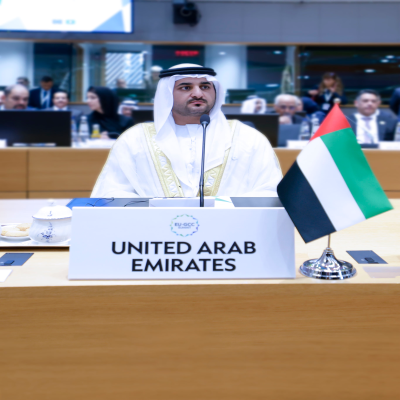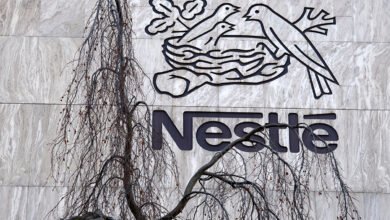
Historic GCC-EU Summit in Brussels Led by Sheikh Maktoum
Sheik Maktoum bin Mohammed bin Rashid Al Maktoum is leading the United Arab Emirates delegation at the first-ever Gulf Cooperation Council-European Union summit in Brussels. This historic meeting brings together leaders from both regions to discuss shared interests and challenges. The summit aims to strengthen diplomatic relations and explore opportunities for collaboration on various fronts.
The gathering focuses on several key areas of mutual concern. These include enhancing economic ties, addressing climate change, and tackling regional security issues. The presence of high-profile figures like Sheik Maktoum and Saudi Crown Prince Mohammed bin Salman highlights the importance of this landmark event. The summit is set to shape the future of GCC-EU partnership and cooperation.
Historic First GCC-EU Summit
Key participants and objectives
The inaugural Gulf Cooperation Council-European Union summit brought together leaders from both regions in Brussels. Sheik Maktoum bin Mohammed bin Rashid Al Maktoum led the UAE delegation, while Saudi Crown Prince Mohammed bin Salman was also present. The event aimed to strengthen diplomatic ties and explore collaboration opportunities. Leaders spent hours discussing political, security, and economic issues, reflecting the summit’s significance.
Significance for UAE-EU relations
For the UAE, this summit held great importance. Sheik Maktoum emphasized the unique chance for constructive dialog to advance mutual development. The UAE’s participation showcased its commitment to international cooperation and sustainable global progress. The summit aligned with the country’s strategy of fostering global dialog, supported by its leadership. Sheik Maktoum reaffirmed the UAE’s dedication to expanding the GCC-European partnership across various sectors.
Summit’s focus on regional cooperation
The summit addressed critical regional issues, including security challenges in the Middle East. Leaders pledged to work together to promote global and regional security and prosperity. They committed to preventing conflicts and resolving crises through enhanced dialog and engagement. The EU recognized the GCC’s fundamental role in dispute mediation and resolution. Both sides agreed to deepen security cooperation in areas such as counterterrorism, maritime security, and cyber issues. The summit also focused on strengthening economic ties, with discussions on a potential free trade agreement and cooperation in energy security and digital connectivity.
Strengthening Economic Ties
Trade and investment opportunities
The EU-GCC summit has paved the way for enhanced economic cooperation between the two regions. European Commission President Ursula von der Leyen expressed the EU’s aim to establish an economic corridor with Gulf countries. This corridor would increase trade in renewable energy, data, and people-to-people exchanges. The summit’s joint statement emphasized the importance of fair partnerships that respect each region’s economic conditions and ensure an equitable distribution of responsibilities and benefits.
Energy cooperation and climate change
Climate change and energy security were key topics of discussion at the summit. The EU, a pioneer in climate transition initiatives, sees the GCC as a valuable partner in addressing these challenges. GCC countries, with their vast solar and wind resources, have the potential to play a crucial role in implementing strategies to meet climate commitments and economic goals. The summit highlighted the need for joint efforts to harness the opportunities provided by the green transition.
Digital transformation and innovation
The summit also focused on digital transformation and innovation as crucial areas for collaboration. Both regions recognized the potential of digital technologies and artificial intelligence in accelerating sustainable development. They resolved to identify pathways to jointly promote digital transformation while encouraging convergence of international standards in the digital domain. The EU and GCC agreed to explore cooperation in telecommunications, advanced technologies, and the digital economy to create a better digital world for future generations.
Addressing Regional Security Challenges
Middle East peace process
The summit highlighted the urgent need to address the ongoing conflicts in the Middle East. Leaders emphasized the importance of reviving the peace process to fulfill the Palestinian people’s aspirations for an independent state with East Jerusalem as its capital, based on the 1967 borders. They agreed this was the sole path to achieving security and stability in the region. The GCC and EU leaders reaffirmed their commitment to a two-state solution, where Israel and Palestine coexist peacefully within secure, recognized borders.
Iran nuclear deal discussions
Discussions on Iran’s nuclear program took a cautious tone. The leaders expressed regret that Iran’s unabated nuclear advances over the past five years have made a return to the Joint Comprehensive Plan of Action (JCPOA) increasingly difficult. They called on Iran to pursue regional de-escalation and implement its safeguards obligations under the Nuclear Non-Proliferation Treaty. Both parties shared a clear determination that Iran must never develop or acquire a nuclear weapon. The GCC countries, in particular, stressed the importance of diplomatic engagement with Iran to achieve regional de-escalation.
Maritime security in the Red Sea
The summit addressed the critical issue of maritime security in the Red Sea. Leaders expressed deep concern about the threat to navigation and security in the area, in line with UN Security Council Resolution 2722. They demanded that the Houthis halt attacks against vessels in the Red Sea and Gulf of Aden. The EU and GCC agreed to develop a joint approach to maritime security in the context of the EU Structured Security Dialog. They also appreciated regional efforts, including those of the Combined Maritime Forces and the EU defensive Operation EUNAVFOR ASPIDES, aimed at safeguarding freedom of navigation in international waters.
Future of GCC-EU Partnership
Commitments for regular summits
The EU and GCC leaders have agreed to hold summits every two years, with the next one scheduled for 2026 in Saudi Arabia. This commitment to regular high-level meetings underscores the importance both sides place on their strategic partnership. These summits will provide a platform for leaders to discuss pressing issues, evaluate progress, and set new goals for collaboration.
Joint initiatives and action plans
To strengthen their partnership, the EU and GCC have endorsed a Joint Action Program for 2022-2027. This comprehensive plan outlines concrete activities and cooperation in various areas, including trade, investment, climate change, energy transition, and humanitarian aid. The EU has also adopted a Joint Communication on a “Strategic Partnership with the Gulf,” setting an operational roadmap for closer ties. These initiatives aim to accelerate integration and achieve higher levels of economic, political, and security cooperation.
Long-term vision for strategic alliance
The long-term vision for the EU-GCC partnership focuses on creating a mutually beneficial relationship that enhances stability and prosperity in both regions. Key areas of collaboration include:
- Advancing trade and investment relations, potentially through a regional free trade agreement and tailor-made bilateral agreements.
- Cooperating on climate change mitigation and adaptation, as well as developing renewable energies and improving energy efficiency.
- Enhancing digital transformation and innovation, including joint research and development in fields like fintech and health.
- Strengthening security cooperation, including counterterrorism and cybersecurity.
- Promoting people-to-people exchanges and cultural understanding.
By working together on these fronts, the EU and GCC aim to build a robust strategic alliance that can address global challenges and contribute to regional and international stability.
The inaugural GCC-EU summit in Brussels marks a significant milestone in the relationship between these two regions. This historic gathering has paved the way to strengthen diplomatic ties, boost economic cooperation, and tackle shared challenges. The commitment to hold regular summits and the endorsement of a Joint Action Program show that both sides are serious about building a lasting partnership.
Looking ahead, the GCC-EU alliance has the potential to make a real difference in areas like trade, climate action, and regional security. By working together, these two powerhouses can contribute to global stability and prosperity. The summit’s success sets the stage for a deeper, more collaborative relationship that could shape the future of international relations in positive ways.






